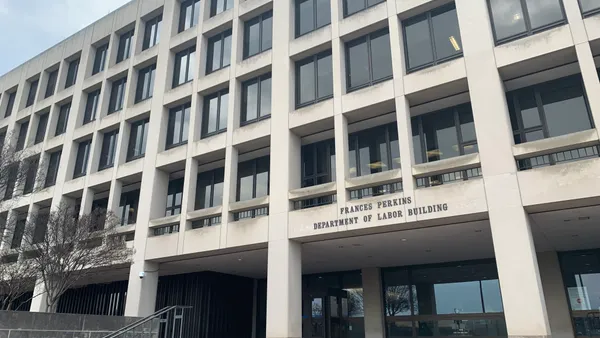Dive Brief:
- A former interim watershed director for the city of Atlanta was demoted and passed over for promotions due to her conduct — not her sex nor in retaliation for taking Family and Medical Leave Act leave — the 11th U.S. Circuit Courts of Appeals held in a May 23 decision (Lockett v. City of Atlanta, Ga.)
- The city demoted the worker from her interim role as a result of an emergency relating to the department’s fluoride supply that occurred while she was on FMLA leave. In reviewing the circumstances, the 11th Circuit found the city offered three nondiscriminatory reasons for the worker’s demotion: 1) she was insubordinate; 2) she “lacked accountability and professionalism;” and 3) she had recurring communication issues.
- Viewing all evidence, the 11th Circuit said, “the district court found that no evidence supported a reasonable inference that the City’s explanations for demoting and twice failing to promote [the plaintiff] were pretext for discrimination or retaliation.”
Dive Insight:
Occasionally, employers discover an issue with a worker’s conduct while they are on FMLA leave and move to take an adverse action against them. In some cases, workers allege the issue is a pretext in retaliation for taking that leave.
In this case, the worker alleged she was investigated for false allegations immediately after requesting FMLA leave. Additionally, while she was on leave, a water plant ran out of fluoride chemical treatment due to a miscommunication about the purchase order. A few months later, she was demoted and had her pay cut as a result of the incident. She was then passed over for two promotions, after which she alleged she was constructively discharged.
The worker was unable to show pretext for these actions, the 11th Circuit determined. In the case of the fluoride incident, while an investigation showed one of the worker’s superiors was aware of the shortage a few days before the worker’s notification, the city did not have ongoing concerns about his conduct, as it did for the interim watershed director. And even if the fault was the superior’s, the court concluded, the commissioner’s “erroneous belief to the contrary is not proof of discrimination.”
The city also offered nondiscriminatory reasons for declining to promote the worker in one case, the court said, showing it was looking for a candidate with “more linear experience.” In the other case, there was no evidence the city wanted to hire the chosen candidate because he was a man, the court said.
In a 2018 case, a court similarly refused to allow an employee to proceed with an FMLA interference claim when an employer discovered the worker had falsely told a customer their order was in process. The worker then allegedly lied when confronted, the court said.
While timing can prove suspect in a case involving protected activity, strong documentation and good communication can help employers defeat a charge, an attorney previously told HR Dive.















